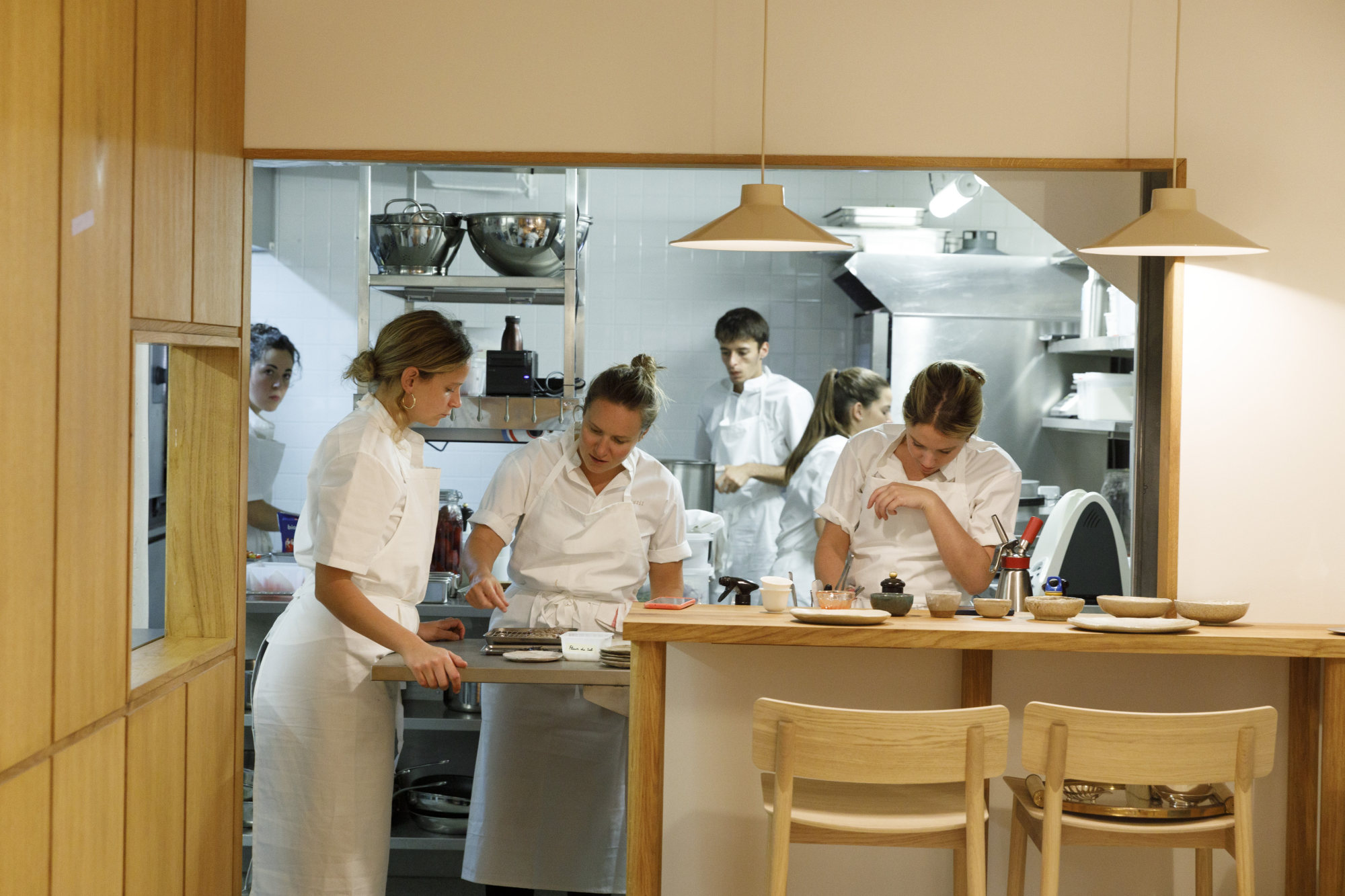The origin story of Fleury’s unexpected dish dates back to 2015, when she went to the United States to work at the acclaimed Blue Hill at Stone Barns with chef Dan Barber.

“He does conceptual dishes and had a course called ‘Rotation Risotto’, which explains the rotation of crops in the fields,” says Fleury. “This was the first time I understood that a dish served in a restaurant could be delicious, yet at the same time be political, teach and tell a story about what is happening in agriculture.”
Returning to France soon afterwards, Fleury brought this awareness to the way she sources ingredients, starting when she took over Parisian restaurant Le Mermoz in January 2018, and continuing when she opened Datil.
I thought nobody would like it … a client said it was the best dish of the meal
“I forged relationships with a group of producers. I wanted us to get to know each other, to see how they work and to hear about the issues they have, so I can know how to cook their product and tell their stories,” she says.
In 2022, Fleury published Céréales, a book with a focus on grains, that explores diversity, balance and sustainability. It features a recipe for a rice porridge with mushrooms, inspired both by congee and the French comfort dish bouillie de riz. Fleury debuted a version of the dish at a restaurant residency.
“I thought nobody would like it,” she says. “Everybody would say that we should not have such a simple dish on a gastronomic menu. The first time I served it, a client said it was the best dish of the meal.”

When Fleury opened Datil, she decided this congee-inspired dish should feature.
“It is made with rice cooked in a rice cooker and rice cream, blended and balanced with a little bit of vegan broth,” she says. “On the top we put various condiments – vegetables and fruits which change with the seasons.
“Right now, spring is coming, so we might put turnip, or radishes, or some of the first strawberries coming from the south of France, along with sorrel, lots of herbs and flowers.
“Last winter we served it with celeriac and mushrooms. It’s a savoury and sweet dish, with lots of acidity.”
As part of her commitment to support local producers, the white rice Fleury uses comes from the Camargue, a coastal region in the south of France that has grown rice since the Middle Ages. Although her menu has a strong focus on vegetables, she serves meat, too.

“Right now, 85 per cent of the menu is plant-based, but we do work with meat and fish, too,” she says. “It’s important that we support fishermen and farmers who have sustainable working practices, or they might just disappear.”
Fleury is not to be trifled with. As a girl, she chose a weapon traditionally reserved for men – the sabre – and went on to become the French junior national fencing champion in 2008.
There has been a men’s sabre event at every Olympic Games since 1896. Yet it took more than a century for the first women’s event to be held, at the 2004 Olympics.
“There’s something very similar about [kitchen] service and fencing – a sort of adrenaline and motivation,” says Fleury. “The fact that every day we think about what we can do to improve ourselves. We never let go, we must be tenacious and concentrate.
“There is always something in the restaurant you need to be ready for, there will be problems. So, you need to fight a little, improve things and jump again.”

When Fleury received her Michelin star for Datil, the speed with which she won the award attracted media attention. The way she organises her kitchen – a horizontal structure of three chefs sharing equal positions – and the fact that her kitchen team is mostly female, sparked curiosity and negative speculation.
The kitchen structure wasn’t strictly planned – it came about more through an experience Fleury had when recruiting.
“Three female chefs with equal experience applied for positions at Datil and I didn’t want to choose between them – they were equally talented,” she says.
We did not understand how radical it was to organise our kitchen in this way. We just thought it was modern, a natural evolution
“The idea was to hire them all and then organise the way things operate around their talent. When they leave, these chefs will all know how to run a kitchen and take on positions of responsibility. Hopefully, there will soon be more kitchens with women in charge.”
Recalling how a clip of her talking about the female-heavy brigade caused a stir, she says: “There was a small video on Instagram saying that we did positive discrimination – which is common in many countries that fight against inequality.
“People on social media started saying that we discriminated against men, which is not the case. There were some unpleasant comments on Google, but we stopped it.
“We did not understand how radical it was to organise our kitchen in this way. We just thought it was modern, a natural evolution. We intend to continue to do the same; there are many things in this industry we want to improve.
“We will still have women in the restaurant and still push them to succeed.”

Fortunately, cooking at Datil is not just about teaching, learning and fighting battles. For Fleury, joy is a priority, both for her team and guests.
“The most important thing is to take pleasure in the restaurant, to have a good moment, a good experience. The food should be poetic. It’s a celebration of produce.”

